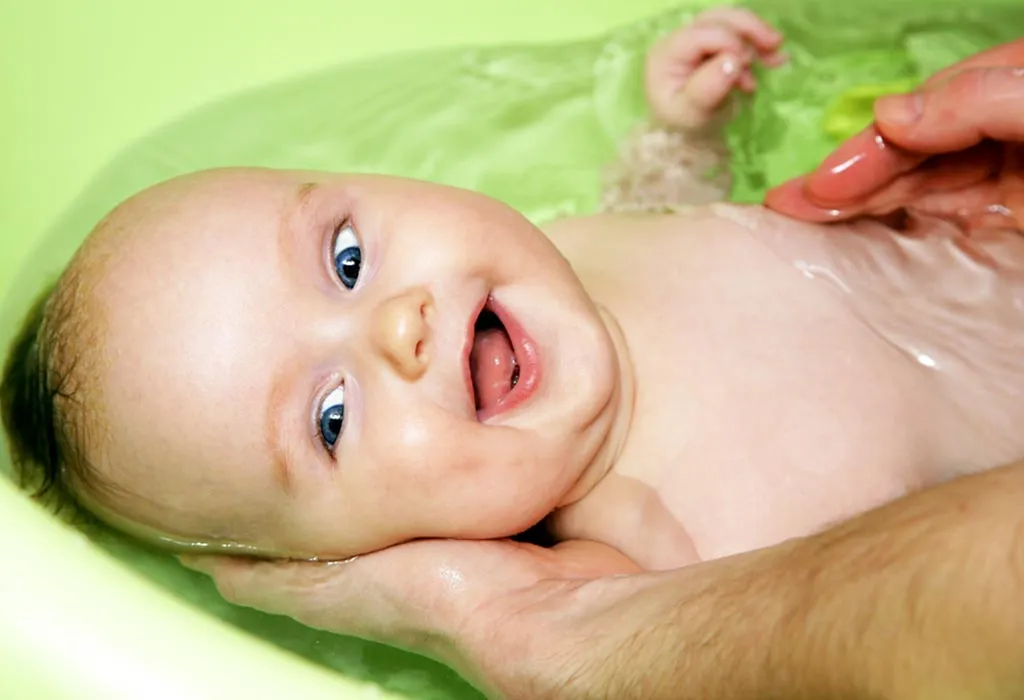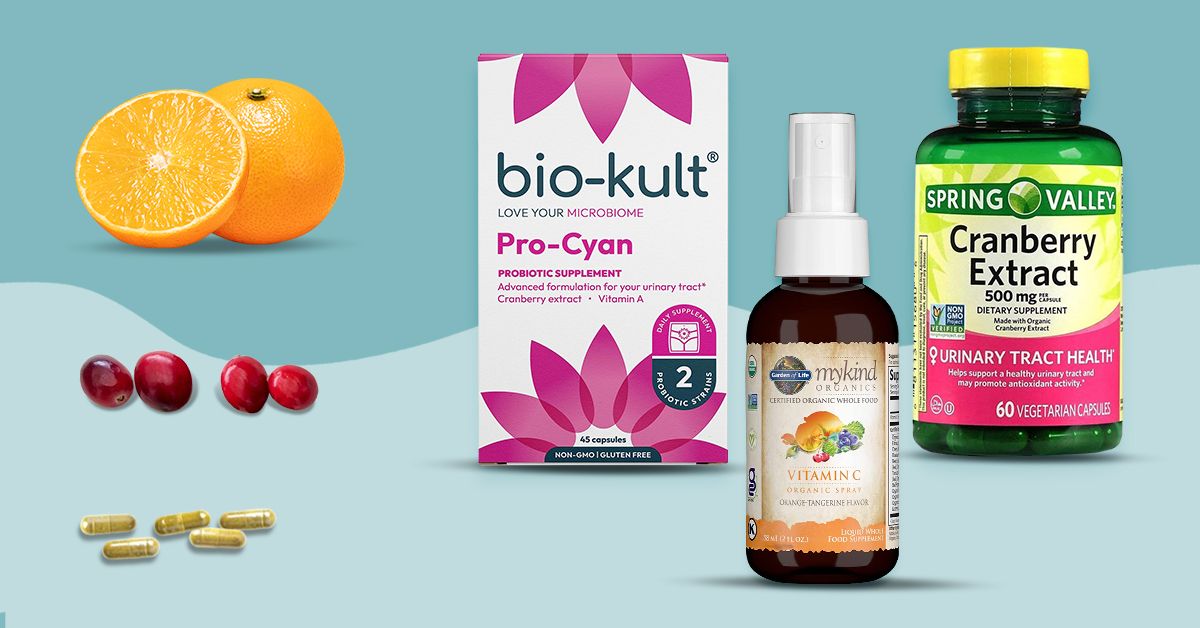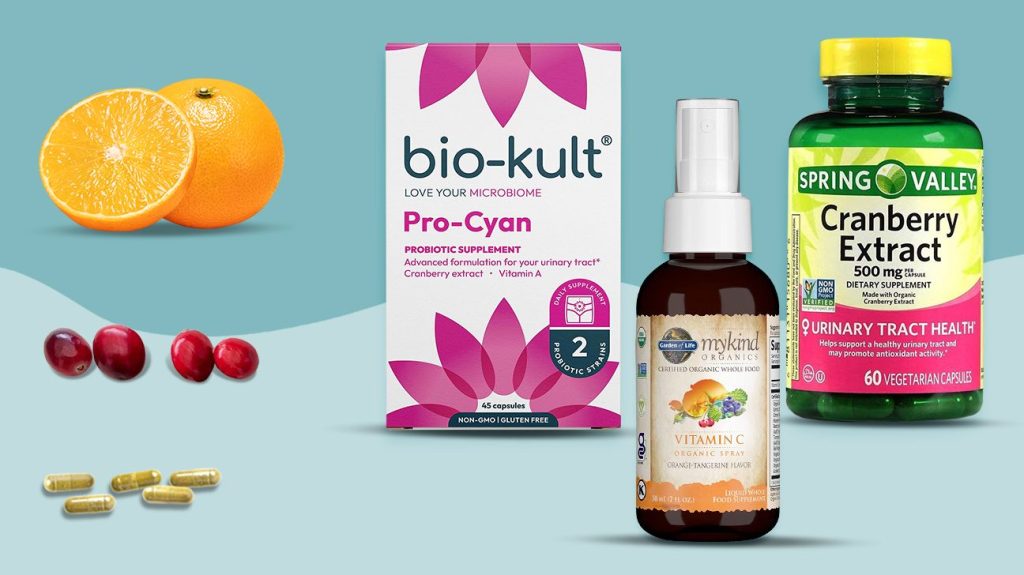A gentle increase in fluid intake and applying a warm compress can ease a baby’s urinary infection symptoms. Consult a pediatrician for proper diagnosis and treatment.
Urinary infections in babies require prompt attention to prevent complications. As a parent or caregiver, spotting the signs early can lead to quicker relief for your little one. Symptoms like fever, fussiness, or changes in urination patterns are red flags.
While home remedies may provide temporary comfort, they are not substitutes for medical advice. Ensuring your baby stays well-hydrated helps flush out bacteria from the urinary tract. A warm compress on the baby’s lower abdomen may also soothe discomfort. It’s crucial to avoid any harsh or unverified home treatments. Remember, a healthcare professional should always assess a baby’s urinary infection to recommend the safest and most effective therapy.

Credit: parenting.firstcry.com
Spotting Urine Infection In Babies
Parents often worry when their baby is unwell. Urine infections can be tricky to spot in babies. It’s crucial to recognize the signs early. This helps in treating the infection swiftly.
Common Symptoms
Identifying a urine infection in babies involves observing their behavior and physical symptoms. Look out for these key signs:
- Fever: A high temperature without other cold symptoms can be a telltale sign.
- Fussiness: Babies may cry more than usual or be hard to comfort.
- Feeding problems: Watch for reduced appetite or difficulty feeding.
- Urine odor: A strong or unpleasant smell from the diaper may indicate an issue.
- Urine color: Dark, cloudy, or bloody urine can be a warning sign.
- Unusual diaper wetting: A decrease or increase in wet diapers should be noted.
When To Seek Medical Attention
Immediate medical care is necessary if your baby shows these symptoms:
| Symptom | Action |
|---|---|
| Persistent fever | Call your doctor right away. |
| Vomiting | Seek medical advice. |
| Less responsive or lethargic | Visit the emergency room. |
| Pain or swelling in the back or lower abdomen | Get a medical examination. |
Infections in babies can escalate quickly. Do not wait to see if symptoms improve. Early treatment is key to recovery.
Causes Of Urinary Tract Infections In Infants
Understanding the causes of urinary tract infections (UTIs) in infants can help prevent these uncomfortable conditions. UTIs occur when bacteria enter and multiply in the urinary system. Let’s explore how these infections arise and identify the factors that increase risk.
Bacterial Entry Points
The primary cause of a UTI in an infant is bacteria entering the urinary tract. This can occur in several ways:
- During birth: Infants can be exposed to bacteria from the mother’s birth canal.
- Through the urethra: Bacteria from the skin can enter the urethra and travel up to the bladder.
- Diaper changes: Improper cleaning can allow bacteria to reach the urinary tract.
Risk Factors
Several factors can increase an infant’s risk of developing a UTI. Being aware of these can help in taking preventive steps.
| Risk Factor | Description |
|---|---|
| Gender | Girls have a higher risk due to shorter urethras. |
| Blockages | Any obstruction in the urinary tract can trap bacteria. |
| Vesicoureteral reflux | Urine flows backward from the bladder towards the kidneys. |
| Family history | A history of UTIs in the family can suggest a genetic predisposition. |
Home Remedies For Immediate Comfort
Dealing with a urine infection in babies can be stressful. Prompt action can bring immediate comfort. Home remedies offer gentle relief while medical advice is sought.
Hydration Strategies
Keeping babies hydrated is crucial during a urine infection. Fluids help flush out bacteria. Offer plenty of liquids to your baby. Breast milk is ideal for infants. For older babies, clear fluids like water or diluted apple juice work well. Use a clean sippy cup or bottle to encourage regular sips.
- Offer small amounts frequently to ensure hydration without overwhelming your baby.
- Monitor wet diapers to check fluid intake and output.
Comfort Measures
Discomfort from a urine infection can make babies fussy. Comfort measures can soothe your little one.
- Change diapers often to keep skin dry and clean.
- Use warm water for cleaning the diaper area. Avoid wipes with alcohol or fragrance.
- Give your baby a warm bath. It can relieve discomfort.
- Dress your baby in loose-fitting clothes and cotton diapers to allow air circulation.
Gentle belly rubs can also provide relief. A warm, not hot, heating pad on the belly is soothing. Always check the temperature first to ensure safety.
Remember, while these remedies can comfort, they do not replace professional medical treatment. It’s important to consult with a healthcare provider for any signs of a urine infection in your baby.

Credit: www.healthline.com
Dietary Adjustments For Urinary Health
Managing a urine infection in babies often starts with what they eat. Dietary adjustments can help improve their urinary health significantly. By choosing the right foods and avoiding others, you can help ease their symptoms and prevent future infections.
Beneficial Foods
Some foods can help fight infection and boost urinary health:
- Water: Increases urine flow, flushes out bacteria.
- Cranberries: Prevent bacteria from sticking to the urinary tract.
- Blueberries: Have bacteria-inhibiting properties similar to cranberries.
- Probiotics (like yogurt): Enhance good bacteria in the gut.
- Whole grains: Rich in fiber, aid overall health.
Foods To Avoid
Certain foods can worsen urinary infections and should be avoided:
| Food Type | Reason to Avoid |
|---|---|
| Spicy Foods | Can irritate the bladder. |
| Citrus Fruits | May aggravate the bladder. |
| Caffeine | Increases bladder activity, irritates UT. |
| Chocolate | Contains caffeine and oxalates, harmful for UT. |
| Sweeteners | Can cause irritation and discomfort. |
Importance Of Proper Diaper Hygiene
Keeping babies healthy often starts with good hygiene. Proper diaper hygiene is essential for preventing urine infections. It’s not just about changing diapers but how it’s done.
Diaper Changing Techniques
Effective diaper changing techniques can protect babies from infections. Follow these steps:
- Wash hands before and after changing diapers.
- Gently clean the baby’s skin with water and mild soap.
- Pat dry—no rubbing—before putting on a fresh diaper.
- Ensure diapers are not too tight; allow air circulation.
Choosing The Right Diaper
Selecting a suitable diaper is crucial. Here’s a simple guide:
| Diaper Type | Pros | Cons |
|---|---|---|
| Cloth Diapers | Eco-friendly, reusable | More laundry |
| Disposable Diapers | Convenient, absorbent | Can be costly over time |
Check the diaper’s size and material. Avoid fragrances and lotions that may irritate the skin.

Credit: parenting.firstcry.com
Natural Supplements And Their Effects
Dealing with urine infection in babies can be stressful. Natural supplements may offer gentle relief without harsh chemicals. Let’s explore some beneficial remedies.
Herbal Remedies
Herbal treatments can be effective for urine infections. Always consult a pediatrician before using herbs for a baby.
- Cranberry Juice: It prevents bacteria from sticking to the urinary tract walls.
- Dandelion Tea: It helps flush out toxins and bacteria from the urinary system.
- Chamomile Tea: Known for its soothing properties, it can provide relief to the urinary tract.
Vitamin And Mineral Support
Vitamins and minerals boost the baby’s immune system. They help fight infections.
| Vitamin/Mineral | Effect |
|---|---|
| Vitamin C | Increases acidity in urine, making it less hospitable for bacteria. |
| Zinc | Supports the immune system to fight off the infection. |
Soothing Bath Remedies
Soothing bath remedies can comfort babies with urine infections. Warm baths help reduce pain and irritation.
Bath Additives For Relief
Several natural additives can make bath time soothing:
- Baking soda: Add two tablespoons to the bathwater.
- Oatmeal: Use a cloth bag with a cup of oatmeal. It soothes the skin.
- Coconut oil: A few drops can help moisturize and calm the skin.
Safe Bathing Practices
Follow these tips to keep your baby safe:
- Ensure the water is warm, not hot.
- Never leave your baby alone in the bath.
- Limit bath time to 10 minutes to prevent skin drying.
- Pat the skin dry gently after the bath.
When To Introduce Cranberry Juice
Parents often seek safe home remedies for urine infections in babies. Cranberry juice is a popular option. Yet, it’s crucial to know the right time to introduce it. Babies under six months should only consume breast milk or formula. After six months, you can slowly introduce cranberry juice. Always consult with a pediatrician before adding cranberry juice to your baby’s diet.
Benefits Of Cranberry
Cranberry juice contains compounds that may prevent bacteria from attaching to the bladder walls. This can reduce the risk of urinary tract infections (UTIs). It’s also rich in antioxidants. These help protect the body from damage by harmful molecules. Here are key benefits:
- Prevention of UTIs: Cranberries have proanthocyanidins. These may stop bacteria from sticking to the urinary tract.
- Antioxidant Properties: Cranberries are high in vitamin C and other antioxidants.
- Immune Support: The nutrients in cranberry juice support the immune system.
Appropriate Quantities And Precautions
Introducing cranberry juice requires caution. The juice must be pure, not a cocktail with added sugars. Start with small amounts. Mix it with water to reduce its concentration. Here’s a guideline for serving sizes:
| Age | Quantity |
|---|---|
| 6-12 months | 1-2 ounces |
| 1-3 years | 2-4 ounces |
Always watch for any allergic reactions. Signs include hives, itching, or difficulty breathing. Stop the juice immediately if these occur. Speak to your doctor right away. Remember, water and milk are the best drinks for young children. Use cranberry juice only as a supplemental option.
Monitoring Baby’s Urine Output
Keeping an eye on your baby’s urine can be a key indicator of their health. When a baby has a urine infection, their output may change. Parents need to know what to watch for. Monitoring urine output helps spot issues early.
What’s Normal And What’s Not
Babies have different urine patterns. It’s vital to know what is normal for your little one.
- Newborns: They may urinate as many as 20 times a day.
- Older babies: They usually wet fewer diapers, about 4 to 6 times a day.
Signs of a possible urine infection include:
- Dark or strong-smelling urine
- Fever without any clear cause
- Fussiness during or after urination
These may require a doctor’s attention. A urine test can confirm an infection.
Tracking Changes And Patterns
Keeping track of your baby’s urine can help you notice changes.
| Date | Diaper Changes | Urine Color | Other Observations |
|---|---|---|---|
| April 1 | 6 | Light yellow | Normal |
| April 2 | 5 | Dark yellow | Smelly |
Note changes in color, smell, and frequency. Write them down or use an app. This log can show patterns that may signal a problem.
Always consult with your pediatrician if you see changes. Early treatment can prevent complications.
Preventing Future Urine Infections
Keeping your baby’s urinary health in check is vital. Urine infections can be painful and may lead to serious health issues. Simple steps can help prevent future occurrences. Let’s explore how diet and regular check-ups can maintain your baby’s urinary health.
Long-term Dietary Habits
What your baby eats affects their urinary health. A balanced diet keeps their system clean. Introduce these kidney-friendly foods:
- Water: The best drink for the urinary system. It flushes out bacteria.
- Fruits and vegetables: High in vitamins and water. They help prevent infections.
- Whole grains: They’re rich in fibers. Fibers keep the digestive system healthy.
Limit foods high in salt and sugar. They can harm the urinary tract. Remember, a healthy diet supports a healthy body.
Regular Pediatric Check-ups
Regular visits to the pediatrician are crucial. They help catch infections early. During check-ups, the doctor will:
- Review your baby’s health history.
- Perform a physical exam.
- Test the urine if needed.
Stay on top of these appointments. They are key to preventing future urine infections. Your baby’s health is worth the effort.
Frequently Asked Questions
What Can I Give My Baby For Urine Infection?
Consult a pediatrician for appropriate treatment; never give medications without a doctor’s advice. Ensure your baby stays hydrated and follow medical guidance for care.
How Can I Treat My Child’s Urinary Tract Infection At Home?
For a child’s urinary tract infection, consult a pediatrician for appropriate antibiotics. Encourage plenty of fluids and offer a heating pad for comfort. Avoid home remedies without medical advice.
What Is The Fastest Way To Cure A Urine Infection?
Consult a doctor for antibiotics; they’re the quickest remedy for a urinary tract infection. Drink plenty of water and consider using pain relief if necessary.
Can Baby Uti Heal On Its Own?
No, a baby’s urinary tract infection (UTI) generally does not heal on its own. It requires medical attention and appropriate antibiotics to properly treat and prevent complications. Always consult a pediatrician if you suspect a UTI.
Conclusion
Dealing with a urine infection in babies can be stressful, but home remedies offer a gentle approach. Always consult with a pediatrician before trying new treatments. Simple solutions like increased hydration and proper diaper changes can make a big difference.
Remember, early intervention is key to a quick recovery. Keep your little one comfortable and watch for improvements.

